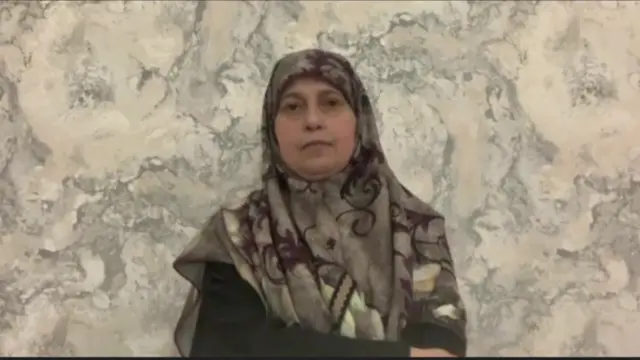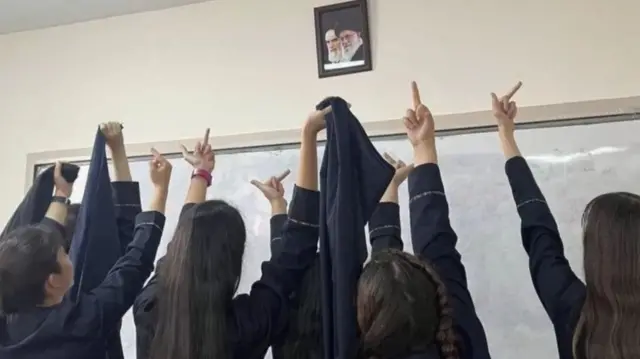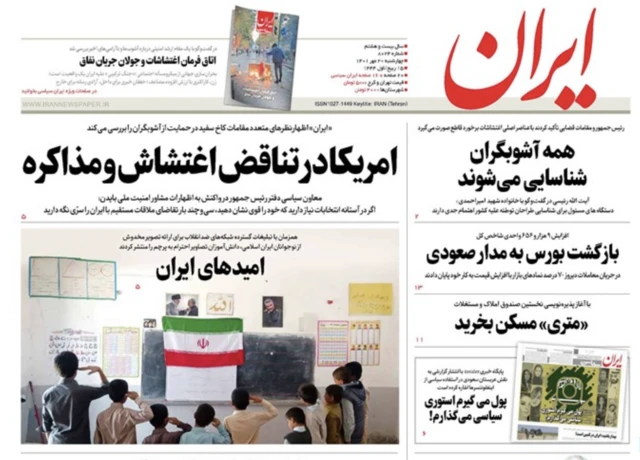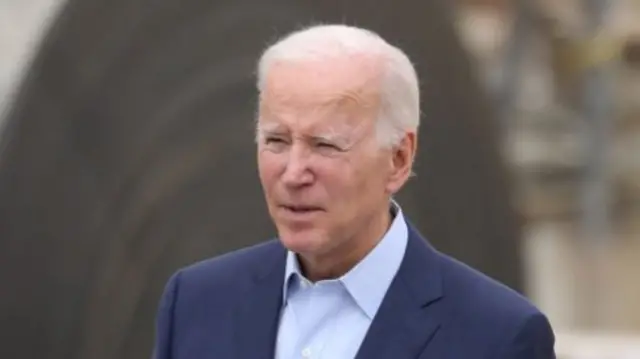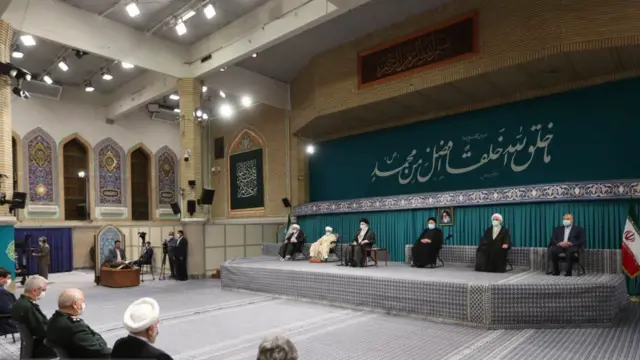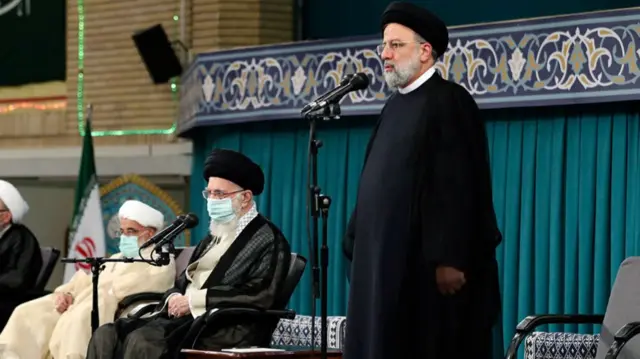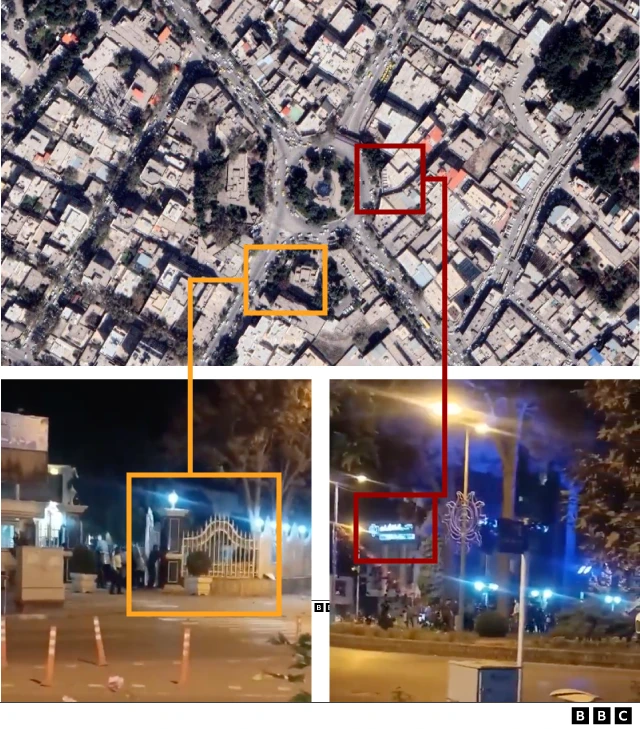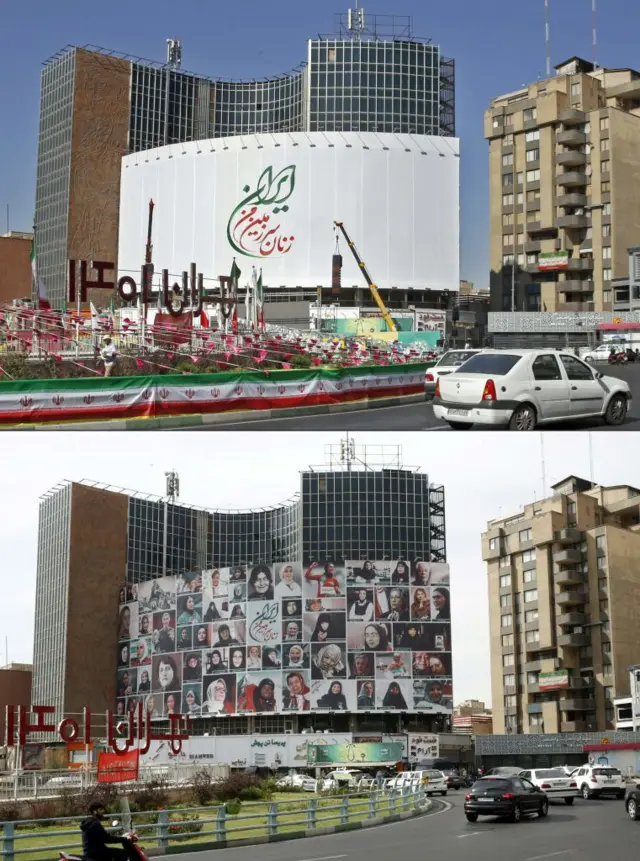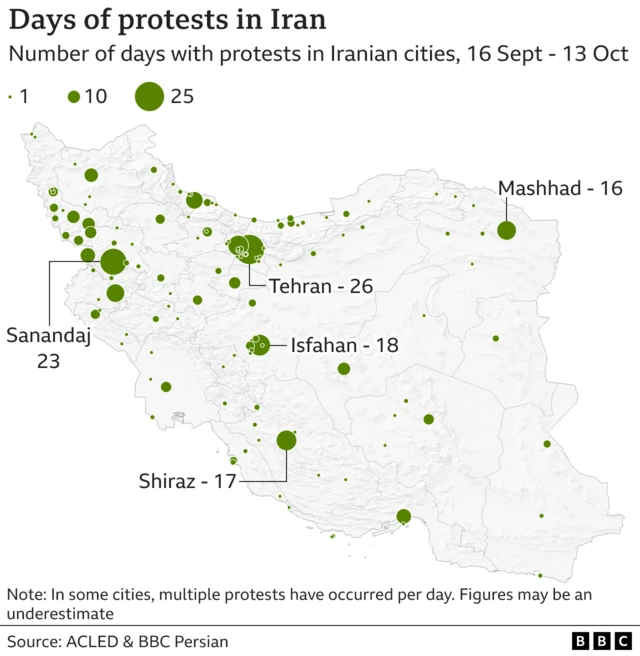That's all for todaypublished at 17:52 BST 14 October 2022
Thank you for following our special day of coverage of protests in Iran.
Friday is the last day of the week in the Iranian calendar - the same as a Sunday in the UK - and universities and schools are closed, so Friday has been chiefly quiet for a protest movement that relies heavily on university students' organisation and planning.
In contrast, Saturday, the first day of the week in Iran, is the day when several protests usually happen across the country. You can follow more of our Iran coverage here.
Today's live page was edited by Alexandra Fouché, David Gritten and Francesca Gillett, with reporting by Jack Burgess, James Gregory, Yaroslav Lukov, Anna Boyd, Emma Pengelly, Daniele Palumbo, Raffi Berg, and our colleagues at BBC Persian.
